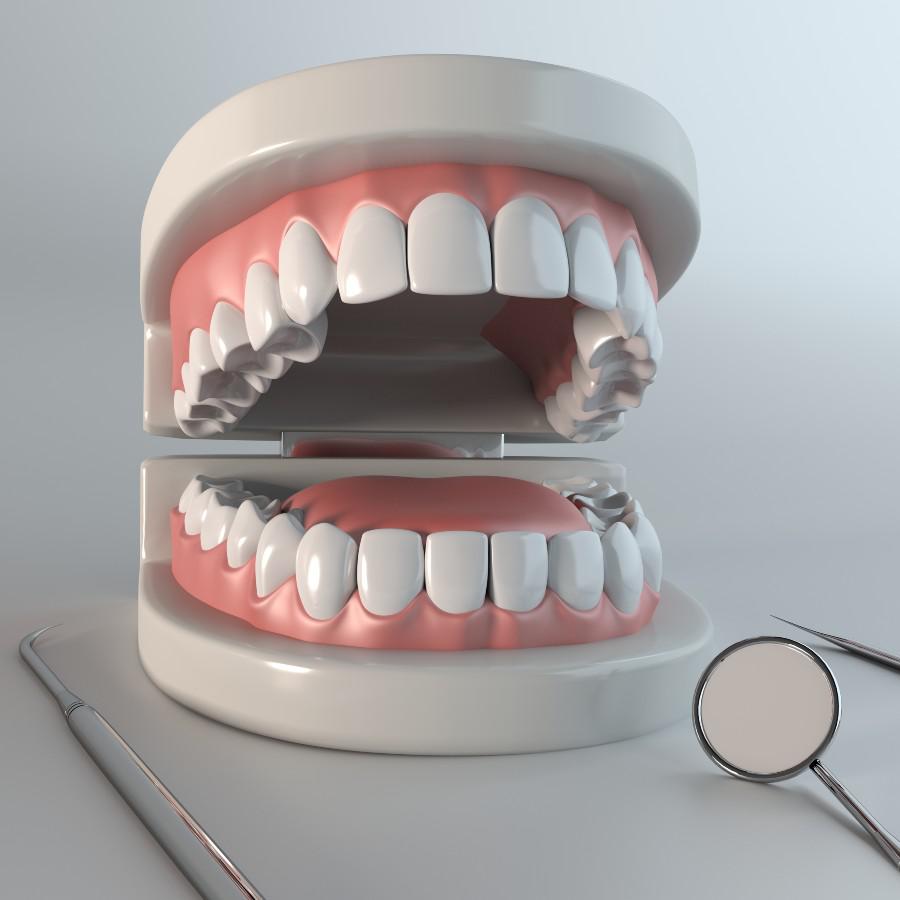 If full mouth reconstruction has been suggested as a treatment option, you might be wondering if you really need it. Extensive dental work can be intimidating, but the results can also be life-changing.
If full mouth reconstruction has been suggested as a treatment option, you might be wondering if you really need it. Extensive dental work can be intimidating, but the results can also be life-changing.
What is full mouth reconstruction?
Full mouth reconstruction involves a combination of dental treatments to rebuild or restore your teeth, gums, and jaw function. While cosmetic elements, such as teeth whitening, may be a component in the process, it’s important to note that full mouth reconstruction is not a purely aesthetic treatment and is intended for people with medical issues affecting the mouth.
Why would I need full mouth reconstruction?
There’s a wide range of factors that could make you a suitable candidate for full mouth reconstruction. Patients who have experienced one or more of the following may benefit from full mouth reconstruction:
- Dental disease – Patients with gingivitis or periodontal disease, that cause gums to become infected and/or recede.
- Trauma – Those who have been in an accident or had facial trauma that resulted in damage to the mouth and/or loss of teeth.
- Erosion – Teeth that have become worn down from grinding or clenching.
- Jaw pain – Patients who experience pain in the jaw or headaches resulting from jaw misalignment (i.e., malocclusion).
Additionally, full mouth reconstruction is also used to treat medical conditions such as:
- Ectodermal dysplasia - Ectodermal dysplasia involves the abnormal development of skin, hair, or teeth. Full mouth reconstruction can help address symptoms such as missing teeth and defective tooth enamel.
- Amelogenesis - Amelogenesis is a rare inherited disorder that causes tooth decay and defective tooth enamel. Patients with Amelogenesis generally do not have working enamel or may be missing enamel altogether. Further, cracked teeth, accelerated tooth decay, and gum disease are common symptoms. Full mouth reconstruction is one of the best ways to address the varying complications of Amelogenesis.
- Dentinogenesis Imperfecta - Dentinogenesis Imperfecta is a disorder that can cause teeth to look discolored, often turning yellow-brown or blue-gray. Dentinogenesis Imperfecta can also cause teeth to appear translucent. The disorder can both affect infant teeth and adult teeth. Full mouth reconstruction can treat discoloration and replace unhealthy teeth if necessary.
- Oral cancer - Oral cancer is a cancer of the mouth where cells grow uncontrollably. If not treated, cancer cell growth can spread to other areas of the body and potentially be fatal. While oral cancer must be treated by an oncologist, once the cancer cells have been removed, full mouth reconstruction can help restore the mouth to health.
Is full mouth reconstruction right for me?
To be a good candidate for full mouth reconstruction, patients must meet a certain baseline of health. For example, if you have an infection, it will need to be treated before reconstruction begins. Additionally, depending on the procedures required for your mouth reconstruction, you may also need to be able to tolerate certain dental procedures or types of anesthesia. It’s also critical that patients be committed to attending appointments and adhering to their dentist’s instructions for the duration of treatment.
Full mouth reconstruction is a complex treatment process based on individual needs and goals. The best way to find out if full mouth reconstruction is right for you is to come in for an evaluation. Our team will help you understand available treatment options and what those processes entail. To schedule a consultation, contact our practice.


